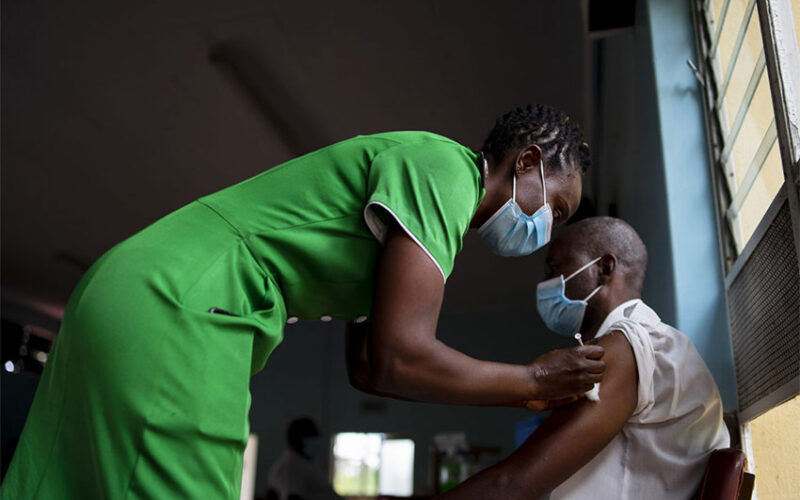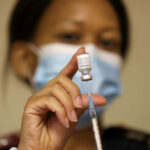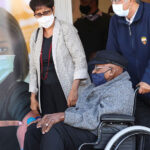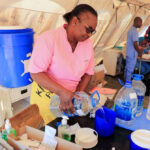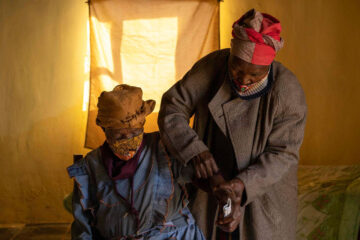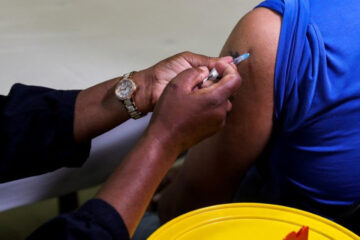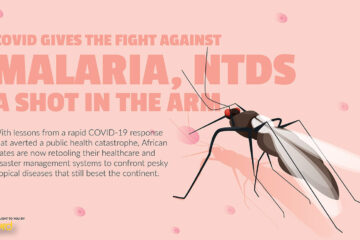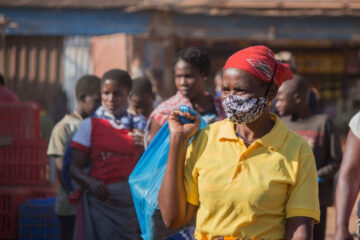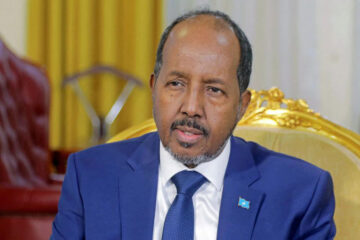SCEPTICISM and concerns over the government’s lack of transparency in dealing with many aspects of the Covid-19 pandemic have derailed the plan to vaccinate frontline workers.
The first phase of Zimbabwe’s Covid-19 vaccination campaign has been extended in most parts of the country owing to a low turnout of the targeted groups. The initial programme, which started at the end of February, was supposed to be finished at the end of the first week in March, but the Ministry of Health and Child Care has given the green light to let it continue in order to reach the set target of 22% of the population.
According to the government’s official vaccine deployment and rollout plan, which was released ahead of the start of the vaccination campaign, the first phase was meant to inoculate about 3 662 000 people consisting of frontline workers in healthcare, at ports of entry as well as defence and security personnel.
Zimbabwe’s vaccination campaign started after the government received a donation of 200 000 vaccines from China in mid-February, with an additional 200 000 doses expected later in March. But in many places around the country, the vaccination campaign has been characterised by a low uptake, resulting in the health ministry’s decision to extend it indefinitely.
In Mashonaland West province, for example, records from its medical directorate show that only 36% of the targeted 5 316 frontline workers had been vaccinated by 3 March. In the southern provinces of Bulawayo, Matabeleland North and Matabeleland South, the turnout has been relatively better. The three provinces were among those that recorded the highest number of Covid-19 cases and deaths.

Munekayi Padingani, the medical director of Matabeleland North, said he was confident that the programme would reach its target of vaccinating 4 025 people. He attributed the slow start to a lack of awareness among the targeted group.
“As of Wednesday [3 March], we had managed to vaccinate 2 010 people. The campaign has been going well but it started slowly because of a lack of sensitisation. We managed to hold sensitisation meetings in which we did tell people why we are vaccinating, what we are using, who are eligible to get vaccinated, possible side effects and what to do in case such side effects develop,” Padingani said.
Matabeleland South has a target of 5 283 people and nearly half of them had been vaccinated by 3 March.

Personal experience
The statistics for Bulawayo were not yet available. But the city council’s health department, working in collaboration with the Ministry of Health and Child Care, set aside 2 March as the day on which journalists who wanted it could get the vaccine.
Abigail Khupe, a journalist with a local media house, was among the first media practitioners to be inoculated and said she readily grabbed the chance because she had been ill with Covid-19.
“Some time last year, I tested positive for Covid-19 and I got quite sick. It was a terrifying experience and I would never want to have it again. I am a mother and I want to protect myself as well as my family from the risk of getting infected, and I believe being vaccinated will help me achieve that.”

Journalist Tanaka Gumbo was also inoculated. She said though it was understandable that many people were sceptical about the vaccine, she believed it was safe.
“Whenever there is something new, be it a disease, as is the case with Covid-19, an invention or anything along those lines, there will always be divergent views. But we must bear in mind that Covid-19 has been a devastating pandemic and as such the vaccines have been made as an emergency. There are scientists and medical practitioners who have worked on coming up with these vaccines. They are knowledgeable people and I don’t believe that they would deliberately come up with something that would harm or destroy the whole of humanity,” Gumbo said.

Overcoming distrust
Despite such sentiments, there is lingering scepticism as well as distrust over the way in which the Zimbabwean government has handled the pandemic. There is also a perceived lack of transparency over the procurement of the vaccines.
The Media Institute of Southern Africa’s Zimbabwe chapter won a high court order in February compelling the government to release comprehensive information to the public on the spread and management of Covid-19 following concerns that it was not doing enough in this regard.
Speaking after the country had received the first batch of Sinopharm vaccines, Tabani Moyo, the institute’s director, said his organisation remained worried about the lack of access to information on the Covid-19 management programme, including the vaccination strategy.
“What the government has simply said is that we are going to do intense analyses of the drugs. How do you procure and start to investigate when you have already procured? It does not make sense that you go all the way in terms of logistical costs and get a drug and you say you want to start analysing it. This is quite worrying and we hope that medical professionals will be given the scope and space to take a frontline role rather than politicians,” Moyo said.

Correct information
Physician and former health minister Henry Madzorera said Zimbabweans had every reason to be concerned and could be excused for being cynical about the vaccines as well as the inoculation programme because the government had not been transparent over these issues.
Madzorera said while the vaccine brought new hope for permanent relief, there could only be buy-in from citizens if they were given adequate information and everything was done above board.
“Dissemination of correct information is key to the acceptance of any particular vaccine by the people, in our case the Sinopharm vaccine, at least for now. The current low uptake is due to a lack of information, which buttresses all the conspiracy theories,” he said.


While officiating at a state function on the outskirts of Bulawayo recently, President Emmerson Mnangagwa said there would come a time when people who had not been vaccinated would not be allowed to use public transport and would not get employment. The statement, made in apparent jest, caused an uproar and many people took to social media expressing their displeasure.
Madzorera said the government had to listen to people’s concerns. “Arrogance on the part of the government will derail the programme. Every citizen has a right to be heard and all concerns must be addressed with empathy, knowing that we are all born equal under the law of Zimbabwe and in the eyes of God Almighty.”
The government was forced to climb down in early February, following a public outcry after Minister of Finance Mthuli Ncube said citizens would have to pay for their vaccines.
The government says its target is to vaccinate 60% of the population of about 16 559 000 by year end. With the current low uptake of the vaccine, it remains to be seen whether such a target will be reached.


